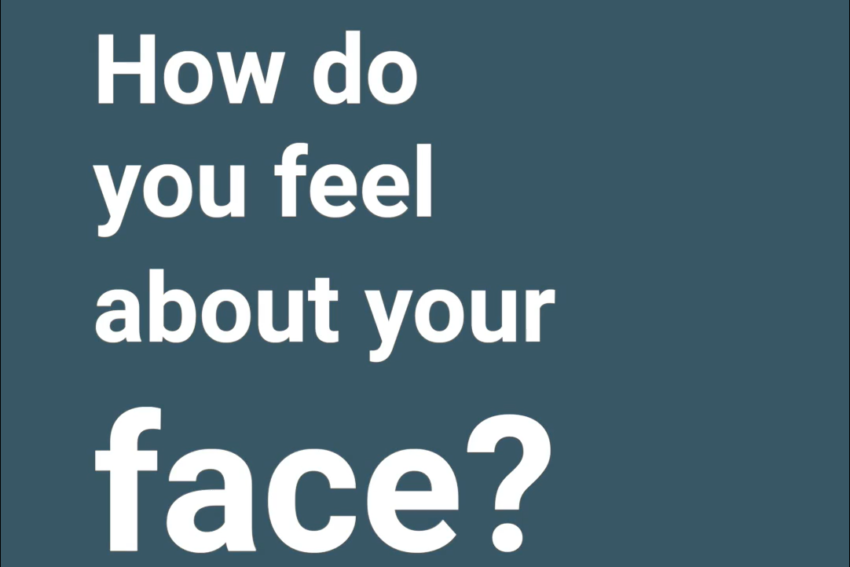This month the AboutFace team has been been focusing on the Being Human Festival, the only UK national festival for the humanities, led by the School of Advanced Study, University of London in partnership with the Arts & Humanities Research Council and the British Academy.
Most of the Festival was online this year, thanks to Covid. I am grateful to our Public Engagement and Events Coordinator, Dr Sarah Hall, who put together a programme of activities that included artistic collaborations,, talks and a series of films that premiered on social media.
Developed in collaboration with artist Clare Whistler and Filmmaker Barry Gibb, this film explores the connections between hands, faces, and surgery. Featuring audio from maxillofacial surgeon Dan Saleh, this video is an artistic interpretation of the intersection between surgery and emotion.
This film fitted well with the Being Human Festival 2020 theme of ‘New Worlds.’ Face transplant is an experimental surgery that has not yet been undertaken in the UK. As such, it very much represents a ‘new world,’ as interdisciplinary groups continue to work together to ensure the best outcomes for patients and surgical teams.
Developed in collaboration with Lucy Burscough’s Dab Hands project, From Hand to Face is a video produced for the Being Human Festival, 2020. With the theme of ‘New Worlds,’ this was the perfect opportunity to draw connections between face transplants, an experimental form of surgery, and what it means to be human. Faces are a core part of how we communicate, how we express ourselves in the world. So too, are hands.
The artist Lucy Burscough worked with AboutFace to produce a short video of the production of an original artwork, featuring quadruple amputee and double hand transplant recipient Cor Hutton.
Would you change your nose if you could? What about an entire face transplant? Historians Emily Cock and Fay Bound Alberti discuss facial difference and medical intervention in this podcast for BBC Radio 3. Follow this link to listen to the podcast.
Emily Cock, from the University of Cardiff looks at our relationship with our noses throughout history – from duels and sexual diseases to racial prejudice.
Fay Bound Alberti, PI for AboutFace, talks about the project and its aim to look at the emotional impact of this complex new surgery and to investigate the moral questions it raises, looking at the impact of facial difference in the age of the selfie, and the emergence of facial transplantation as a response to severe trauma.
Future Faces
In a series of Twitter and Instagram posts, we asked people questions like:
- How do you feel about your face?
- How do you feel about face transplants?
- How do you think others see you?
The videos they created showcase a fascinating range of attitudes to the face and facial identity, in relation to our sense of self and our relationships with others. They will form part of our Museum of Face that is in development: stay tuned for more information.
We held a lively panel conversation, with different perspectives on face transplants and their emotional and cultural impacts. Led by surgical educator Roger Kneebone, the panel discussion explored what our opinions about views on face transplants might tell us about current beauty standards, face equality, and self-representation in the age of the selfie. Roger’s guests included surgeon Dan Saleh, actor Adam Pearson, motivational speaker Tulsi Vagjiani, and sculptor Eleanor Crook, with a Question and Answer session that attracted lively debate.
We recorded the event and it will be screened on our website channel and YouTube shortly.
Keep in touch at aboutfaceyork.com to find out more about our upcoming series of public events and activities, including two new seminar series and publications in press.

